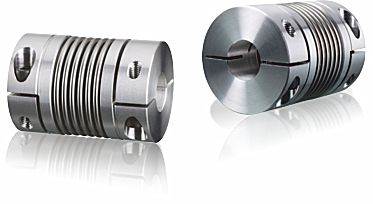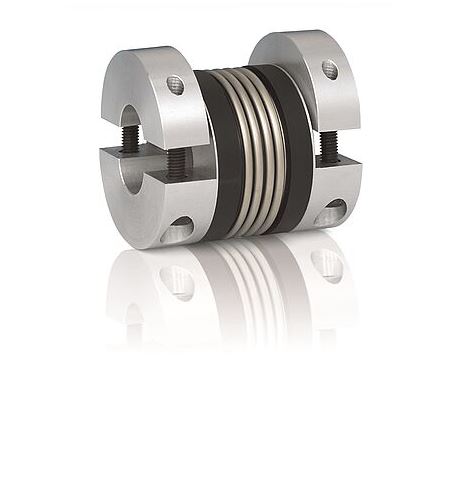Product Description
|
Product Name |
High Torque Motor Generator Shaft Type Flexible Clamp Metal Bellows Couplings |
|
Material |
Aluminum alloy |
|
Surface treatment |
Natural color anode |
|
Customized service |
Support light customization and logo customization |
|
Remarks |
The default engraving brand name and size of the product. If you need not engraving, please contact the customer service for comments |
| Packaging Details | Carton box with anti-static package,carton plus with wooden case. |
| Main Products | Shaft Parts, Timing Belt Pulley, Gears, CNC Machining Parts, Sheet Metal Fabrication |
| Certifications(2) | ISO9001:2015, IPMS |
| Applicable Industries | Building Material Shops, Manufacturing Plant, Food & Beverage Factory, Farms |
| Supply Ability | 100000 Piece/Pieces per Month |
| Dimension | oem provided |
| Surface finish | anodized |
| Lead Time | 25 days |
| Application | Furniture,cabinet |
| Custom | OEM and ODM services are welcome,we can make cutom LOGO and products according to customer’s requests. |
| Quality control Our | Finished product inspection,Warranty available |
| service | Swiss machining;deburring;lathe/turning;5 axis;micromachining |
| Color |
silver,gold,black,red,bulue,and according to the customer requests. |
/* January 22, 2571 19:08:37 */!function(){function s(e,r){var a,o={};try{e&&e.split(“,”).forEach(function(e,t){e&&(a=e.match(/(.*?):(.*)$/))&&1

How Do Bellows Couplings Contribute to Reducing Vibrations and Ensuring Smooth Operation?
Bellows couplings play a crucial role in reducing vibrations and ensuring smooth operation in mechanical power transmission systems. They achieve this through their unique design and material characteristics, which allow them to absorb and dampen vibrations effectively. Here’s how bellows couplings contribute to minimizing vibrations and promoting smooth operation:
- Flexible Bellows Design: Bellows couplings feature a thin-walled, accordion-like structure known as the bellows. This design provides flexibility in multiple directions, allowing the coupling to compensate for minor misalignments and shaft movements. The bellows’ flexing action absorbs shocks and vibrations, preventing them from propagating through the system and reducing the transmission of vibration to connected equipment.
- Vibration Damping: The flexible bellows act as a vibration damper, absorbing and dissipating vibrational energy generated during the operation. When the system experiences dynamic forces or sudden shocks, the bellows expand and contract to absorb these forces, preventing them from resonating throughout the system. This damping action helps maintain the stability of the machinery and prevents excessive wear and tear on components.
- No Mechanical Contact: Unlike some coupling types that rely on friction or mechanical contact, bellows couplings transmit torque through pure flexure without any metal-to-metal contact. This feature eliminates backlash and torsional wind-up, further reducing vibration and ensuring smoother operation. As a result, bellows couplings are well-suited for applications requiring high precision and minimal vibration-induced errors.
- High Torsional Stiffness: While bellows couplings are designed to be flexible, they still possess high torsional stiffness. This stiffness ensures accurate torque transmission without any loss, contributing to the overall efficiency and smoothness of the system’s operation.
- Resonance Avoidance: Bellows couplings are designed to have specific critical speeds and resonant frequencies that prevent resonance from occurring within the coupling itself. Resonance can lead to severe vibration amplification, which can be detrimental to the equipment and surrounding components. The careful design of bellows couplings helps avoid such resonance issues.
By effectively dampening vibrations, absorbing shocks, and providing torsional stiffness, bellows couplings contribute to smoother operation, reduced mechanical wear, and increased overall system reliability. Their ability to handle misalignments and their high torsional stiffness make them a popular choice in precision motion control systems, robotics, and various industrial applications where smooth and accurate performance is essential.

Can Bellows Couplings be Customized or Adapted to Specific Industrial Needs?
Yes, bellows couplings can be customized or adapted to meet specific industrial needs. Manufacturers of bellows couplings often offer a range of customization options to ensure that the couplings can effectively address the unique requirements of different applications and industries.
The customization options for bellows couplings may include:
- Material Selection: Manufacturers can offer a variety of materials for the bellows coupling based on factors such as corrosion resistance, temperature tolerance, and mechanical properties. Different materials, such as stainless steel, aluminum, or specialized alloys, can be chosen to suit the specific demands of the application.
- Size and Dimensions: Bellows couplings can be produced in various sizes and dimensions to accommodate different shaft diameters and spacing requirements. Custom sizing ensures a proper fit and optimal performance in the given system.
- Design Modifications: Manufacturers can make design modifications to the bellows coupling to suit specific environmental conditions or to address unique challenges in a particular application. These modifications may include changes to the shape of the bellows, the number of convolutions, or the addition of protective features.
- Electrical Isolation: For applications requiring electrical isolation between shafts, bellows couplings can be customized with insulating materials to prevent the flow of electric currents between the connected components.
- Performance Enhancements: Couplings can be designed to provide enhanced performance characteristics, such as higher torque capacity or improved torsional stiffness, based on the requirements of the application.
By collaborating with coupling manufacturers or consulting with engineering experts, industrial users can outline their specific needs and constraints. This information helps in the customization or adaptation of bellows couplings to create a solution that optimally meets the demands of the intended application.
It is important to work closely with reputable coupling suppliers or manufacturers who have experience in providing customized solutions. Such collaboration ensures that the final bellows coupling design aligns with the intended industrial needs and delivers reliable and efficient performance in the designated application.

What are the Different Types of Bellows Couplings Available, and Their Respective Applications?
There are several types of bellows couplings available, each designed to suit specific applications and requirements. Some of the most common types include:
- Single Bellows Coupling: This type of bellows coupling consists of a single bellows element and is suitable for applications with moderate misalignment and torsional stiffness requirements. It is commonly used in robotics, automation, and general motion control systems.
- Double Bellows Coupling: The double bellows coupling features two bellows elements with an intermediate shaft in between. This design offers higher torsional stiffness and increased angular misalignment capacity. It is often used in precision positioning equipment and applications requiring higher torque transmission.
- Flexible Beam Coupling with Bellows: This type of coupling combines the flexibility of a beam coupling with the compensating capability of a bellows coupling. It can handle moderate misalignments and provides a good balance between flexibility and torsional stiffness. It finds applications in medical devices, optical systems, and semiconductor equipment.
- Torsionally Rigid Bellows Coupling: As the name suggests, this coupling type offers exceptional torsional stiffness, making it suitable for applications where precise motion control and low torsional backlash are critical. It is commonly used in CNC machines, high-speed spindles, and other high-precision systems.
- Miniature Bellows Coupling: This type is specifically designed for applications with limited space and where low inertia is crucial. It is commonly used in small robotics, miniature positioning stages, and micro-machining systems.
- High-Temperature Bellows Coupling: This specialized coupling can withstand elevated temperatures, making it suitable for applications in harsh environments, such as aerospace, exhaust systems, and certain industrial processes.
The choice of bellows coupling type depends on the specific requirements of the application. Factors such as misalignment compensation, torsional stiffness, torque capacity, space constraints, and environmental conditions play a crucial role in selecting the appropriate coupling type.
When selecting a bellows coupling, it is essential to consider the coupling’s torque ratings, allowable misalignments, and operating conditions to ensure optimal performance and reliability. Consulting with coupling manufacturers or engineering experts can help in making an informed decision based on the specific needs of the mechanical power transmission system.


editor by CX 2024-04-26
